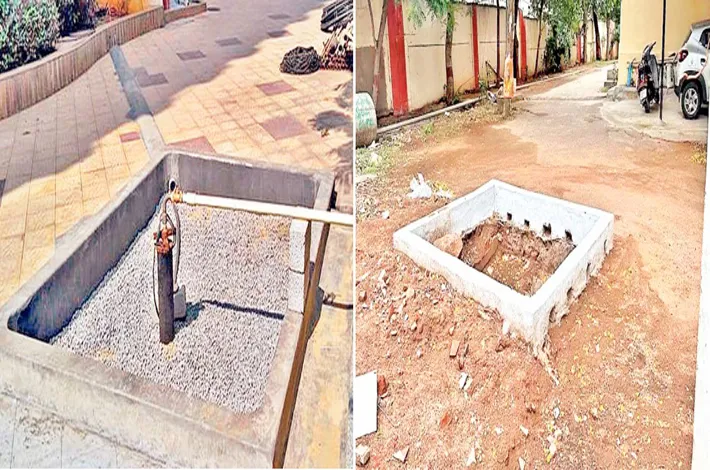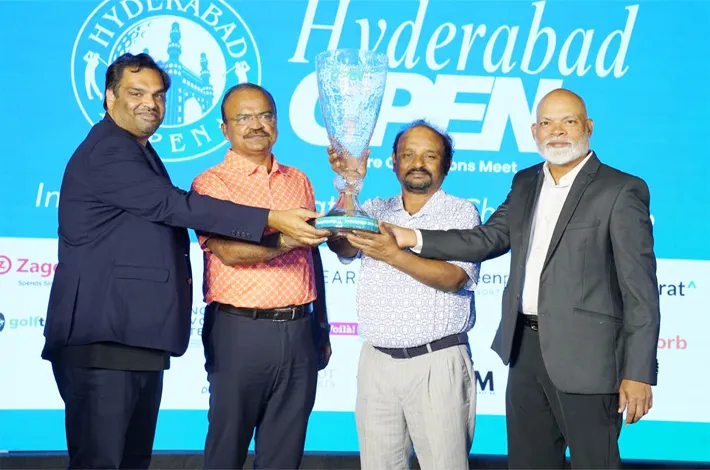45% homes in Hyderabad have no rainwater harvesting pits
24-06-2025 12:00:00 AM

■ Only 23,302 out of 42,000 surveyed houses have rainwater harvesting pits
■ From January 2025, homeowners without RWH structures have faced a sharp rise in water tanker charges—from Rs 500 to Rs 1,000 per booking
Metro India News | Hyderabad
In spite of the dependence on water tankers and depleting groundwater, Hyderabadis it seems have not woken up to go in for rainwater harvesting. According to the latest survey conducted by the Hyderabad Metropolitan Water Supply and Sewerage Board (HMWSSB), only 23,302 out of 42,000 surveyed houses—roughly 55%—have functional RWH pits. The remaining households have yet to comply, despite the city’s overreliance on groundwater and increasing use of costly water tankers.
According to Satyanarayana, Officer on Special Duty at HMWSSB, constructing an RWH pit is affordable and straightforward, costing around Rs 5,000 per cubic metre including materials. He stressed that soak pits play a critical role in recharging groundwater, reducing surface runoff, and replenishing aquifers—key measures to counter water shortages. HMWSSB has been actively promoting awareness, but enforcement is now stepping up.
From January 2025, homeowners without RWH structures have faced a sharp rise in water tanker charges—from Rs 500 to Rs 1,000 per booking. In addition, houses built on plots measuring 300 square yards or more are legally required to install underground soak pits. The government recently clarified its mandate, replacing the earlier and often misunderstood "300 square metre" rule with the more relatable "300 square yards" threshold to improve compliance.
Transport Minister Ponnam Prabhakar has been a strong advocate for rainwater harvesting, urging homeowners to build soak pits through initiatives like the "Prathi Intlo Inkudu Gunta" campaign. He emphasized the need for compliance, especially for houses on plots over 300 square yards, and warned of stricter enforcement to conserve groundwater and reduce Hyderabad’s growing dependence on water tankers.
Some neighbourhoods have already demonstrated the benefits of proactive RWH adoption. Localities like Begumpet, Malkajgiri, Tarnaka, and LB Nagar have seen reduced dependence on tankers during peak summer. Communities like Urmangar and Methodist Colony in Begumpet, and apartment complexes such as Ek Ratna Apartments in LB Nagar and Akruthi Residency in Nizampet, have reported better groundwater levels.
Yet, experts warn that city-wide adoption remains sluggish. With erratic monsoons and mounting pressure on groundwater sources, Hyderabad must move faster. As enforcement intensifies and penalties come into effect, swift action from homeowners will be crucial to prevent deeper water crises in the future.








